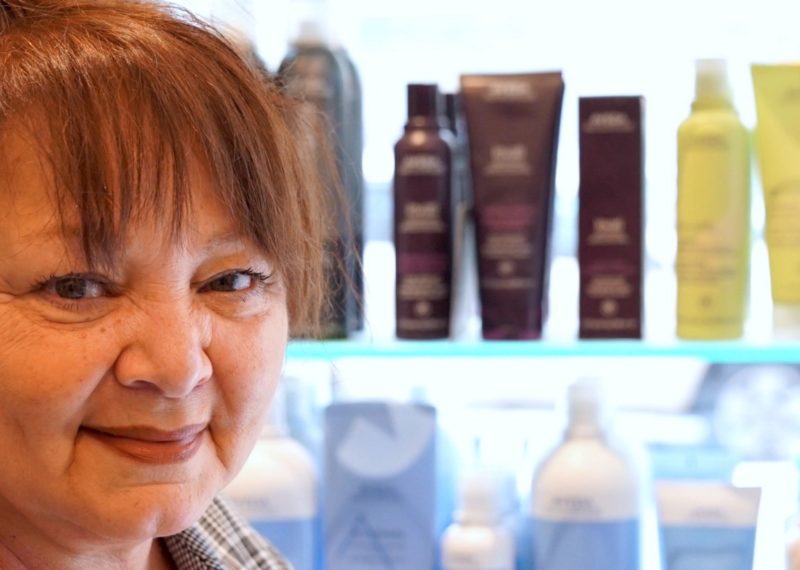Every morning, Luz Hernandez goes to work at her hair salon on the Upper West Side of Manhattan, a neighborhood fixture without a website or a Facebook page, where a trim costs $40 and customers can get a cup of coffee while they wait. Every night, she returns to a full fridge in an air-conditioned home in the Bronx. Income from the salon allows her to live comfortably, though not lavishly — but compared to her family in Puerto Rico, who were devastated by Hurricane Maria, she feels like royalty.
After the hurricane, she recalls thinking, “I have everything here — water, lights, a roof over my head — and they’re over there without any lights.” Hernandez said she could not sit down to a hot meal in a cool home while her brothers and nieces and nephews on the island languished without food or air conditioning. Worried about her family, she took it upon herself to deliver the relief the federal government had failed to provide.
In the aftermath of the storm, Hernandez said, she spent around $8,000 to send aid to family back home, in addition to another $2,000 donated by her clients. “I swear to God, I have the best clients,” she said. The money paid for canned beef and chicken, coffee, peanut butter, batteries, solar-powered radios and lamps, as well as generators needed to operate fans, refrigerators and medical equipment, such as her brother’s dialysis machine.
“I don’t think I did anything so heroic. I did what I had to do,” she said. “I took care of whoever needed the most.” She only wishes the government had done the same.
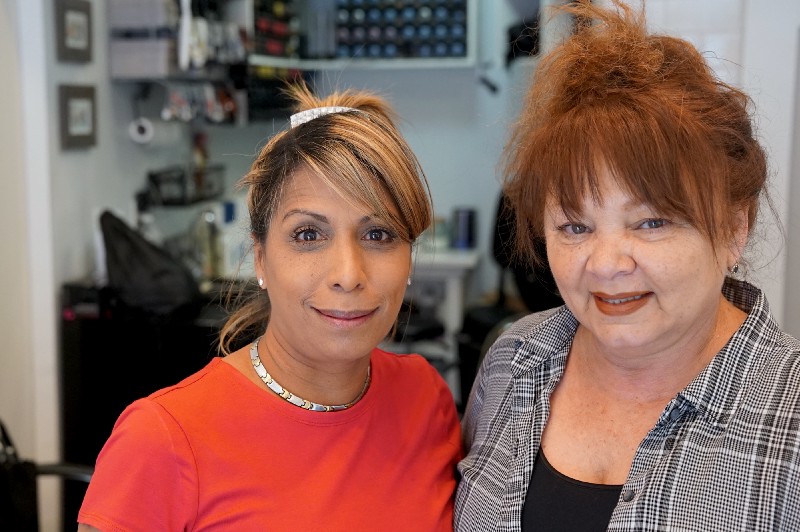
Hernandez is remarkable, though not unusual, among members of the Puerto Rican diaspora—many of whom devoted hundreds of hours and thousands of dollars to helping victims of Hurricane Maria. Those interviewed for this story said they were angry that the government had failed to provide relief, particularly to rural areas, and they remain baffled that President Trump continues to oppose additional disaster aid for the island, which is still recovering from the storm.
Fernando “Ponce” Laspina, who runs El Maestro Inc., a boxing gym and Puerto Rican cultural center in the Bronx, recalled the lack of aid after Maria. “The federal government really didn’t do the job,” he said. “We know a lot of older people who died because they didn’t get help on time.” Like Hernandez, he made it his mission to help those who were left behind.
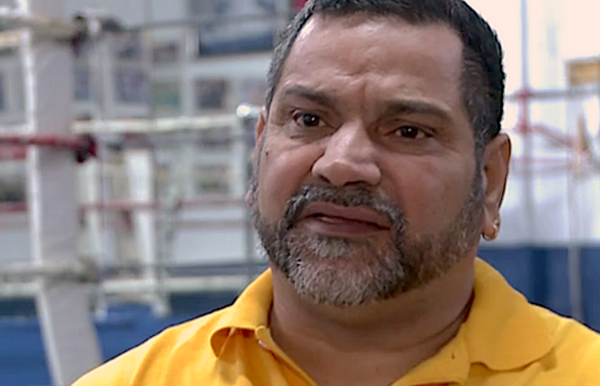
Laspina said that after the hurricane, El Maestro Inc. filled three 40,000-pound shipping containers with food, water and medical supplies — wheelchairs, walkers, diapers and medicine — and paid around $5,500 to ship each one to a different town desperate for aid. The organization relied on donations and volunteer labor. Dozens of people showed up from around New York City and as far afield as Connecticut and Ohio to contribute goods and help fill the containers.
“We had all kinds of people here,” he said. “There were no barriers, you know — black people, white people, Chinese people, young, old, female, male, gay people — it didn’t matter. It was just one big family in New York City coming together for Puerto Rico.” Meanwhile, he added, “No help from the elected officials.”
Edna Benitez took a similar tack, working with Proyecto Matria, a human rights group, to bring relief to a community overlooked for disaster aid. She focused her efforts on Miraflores, a small, mountain town in central Puerto Rico. “This is a community that was marginalized prior to the hurricane,” she said. “After the hurricane, they were just devastated, and they spent several weeks without food and just drinking water from the falls.”
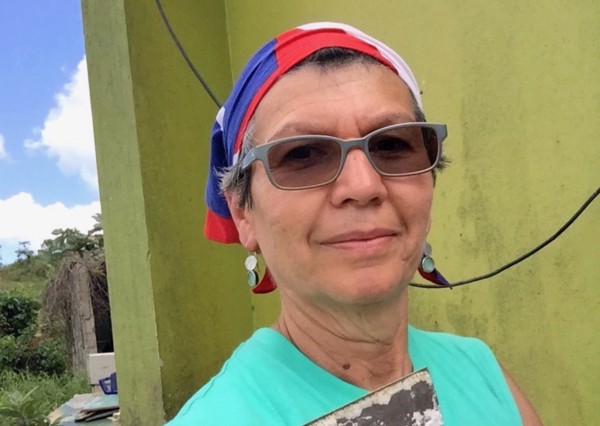
Benitez was aghast at the dearth of federal aid after the storm. “I said to myself, ‘Where is FEMA? Where is the help that we’re supposed to get? Are we a part of the United States?’” she said. On Trump, she said, “We know what his agenda is. He wants to build a wall, and he needs funding for that, and I think that that’s more important [to him] than people’s lives and people’s homes and people’s dignity.” Trump has pushed Congress to include $4 billion in border wall funding in its disaster relief package, all while fighting additional aid for Puerto Rico.
Frustrated by the government’s response to Maria, Benitez partnered with Middle Collegiate Church in Manhattan to raise money for her work in Puerto Rico. Donations paid for her and other volunteers to travel to Miraflores to rebuild homes, set up cisterns, and help community members develop small businesses selling locally grown foods and knitted goods. Benitez, 61, has been to Puerto Rico eight times since Hurricane Maria. She has painted houses, sealed roofs and cleared land for farming, dipping into her savings to help fund her efforts. In July, she will be taking a group of teenagers to Miraflores to do farm work.
Contemplating the work of people like Benitez, lifelong New Yorker Elena Martinez said, “The communities in the diaspora in Florida, in Chicago, in New York and Connecticut, they just came through.” She added, “I guess it’s more real when you know people who were literally affected by it.”
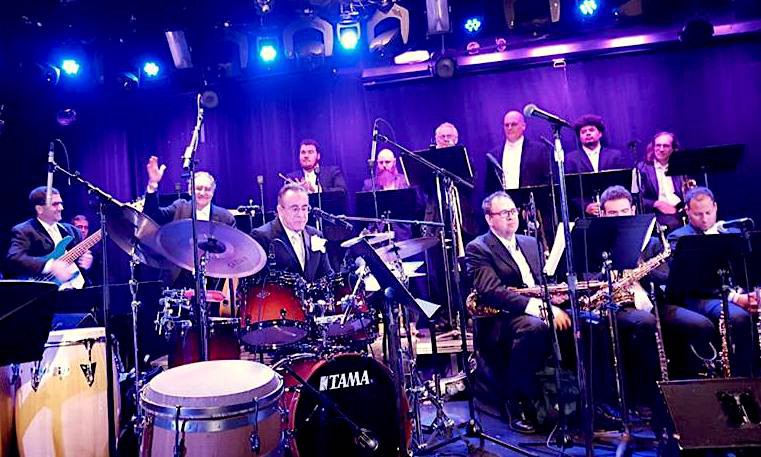
Martinez, who runs the Bronx Music Heritage Center with Puerto Rican jazz drummer Bobby Sanabria, raised money to help musicians on the island pay for housing, food and gas after Maria shut down theaters, restaurants and hotels, making it difficult for them to find work. Sanabria put together a benefit concert after Maria, raising $10,000 for the Jazz Foundation of America’s Puerto Rico Relief Fund. He subsequently produced a record of the music of West Side Story, devoting a portion of the proceeds to the effort.
Elsewhere in the city, Surey Miranda and her husband, Victor Martinez, helped families fleeing the hurricane resettle in New York. She and her husband run a Spanish-language website with resources for newcomers, and work closely with displaced families to help them secure housing and apply for food stamps. Miranda said chats about how best to navigate the government bureaucracy can turn into long conversations about the trauma of living through a natural disaster. She said that, in the first few months after the hurricane, she spent around 30 hours a week helping people, sometimes staying up until 3 a.m. consoling survivors, all while working a full-time job.
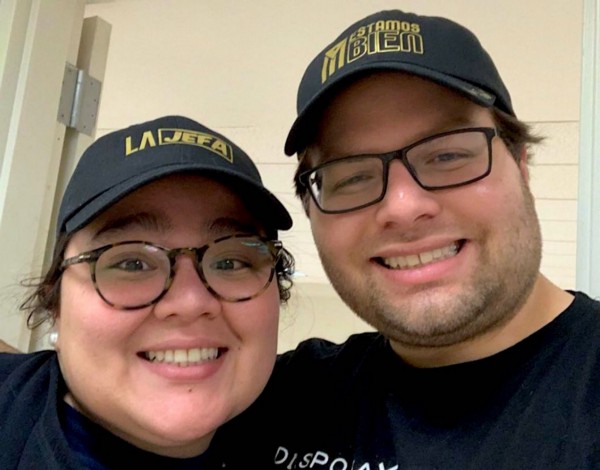
Miranda believes Trump has neglected Puerto Rico because people living on the island, while citizens, cannot vote for president and have no representation in Congress. However, she said, millions of people of Puerto Rican descent living on the mainland can vote, and they do have some measure of political power. “If you see the numbers, there are more Puerto Ricans stateside than on the island,” she said.
Martinez believes the Puerto Rican diaspora, which proved critical in providing relief after the storm, could take Trump to task at the ballot box. “The people here on the mainland who can vote will hopefully take this into account when elections come up,” she said.
Moreover, because Maria spurred so many families to migrate to the mainland, where they can vote, the diaspora is gaining power in states like Florida and Pennsylvania. Puerto Ricans displaced by Hurricane Maria now have the chance to oust a president who refuses to provide the aid the island needs.
Hernandez took some comfort in this. “It’s really sad that he’s such a racist,” she said. “The thing is, the people who moved to… Florida or wherever, they could now go register and vote, maybe change the color of the state.”
Jeremy Deaton writes for Nexus Media, a syndicated newswire covering climate, energy, policy, art and culture. You can follow him @deaton_jeremy.

